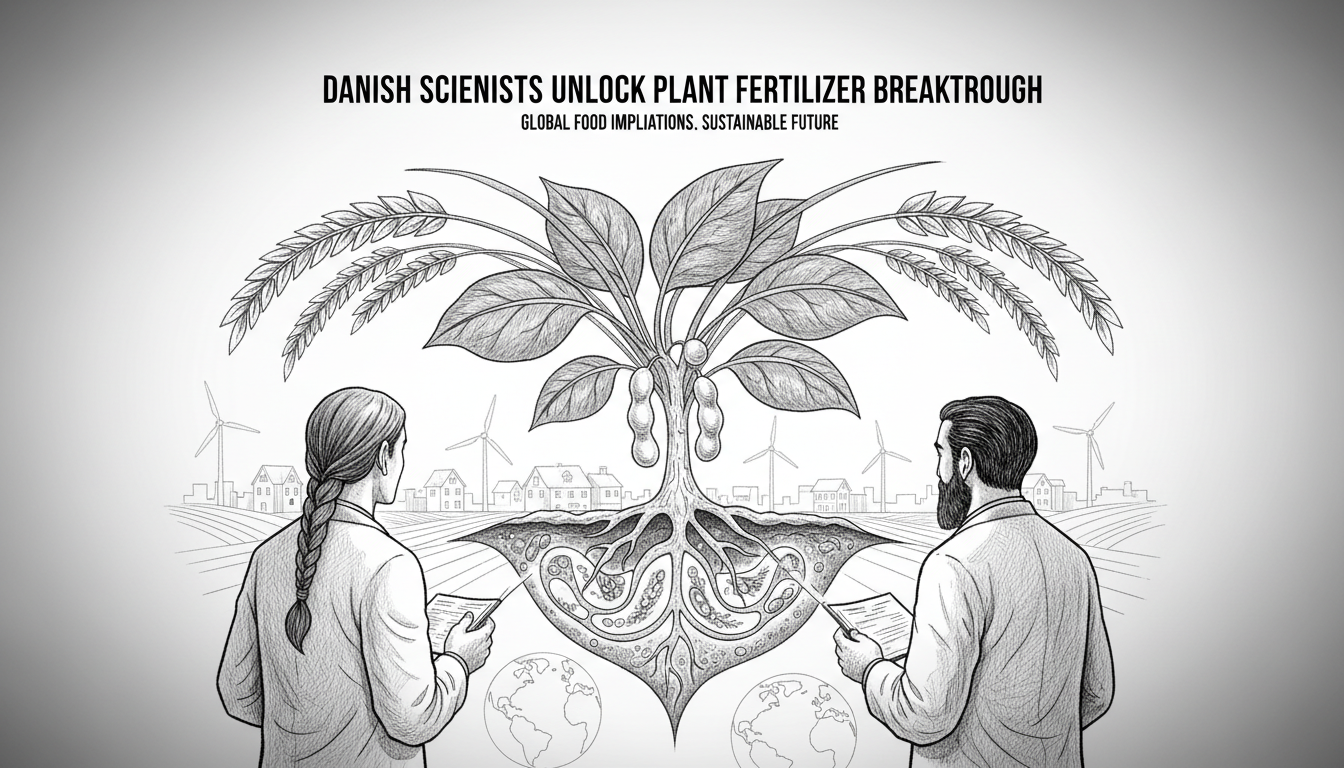Danish researchers have uncovered how legumes grow large without artificial fertilizers. Their discovery could transform farming practices worldwide. The same natural process might apply to vital crops like wheat, barley, rice, and corn.
Look closely at this legume with yellow flowers. It is a Japanese kudzu plant. This species possesses a unique ability most plants lack. Like other legumes including peas, beans, and fava beans, it lives in close symbiosis with soil bacteria. These bacteria eliminate the plant's need for synthetic fertilizers.
Soil bacteria reside in small nodules within the legume's root system. They extract nitrogen from the atmosphere and convert it into nitrogen compounds. Plants then use these compounds to grow strong and large. In return, the bacteria receive sugar from the plant's photosynthesis process.
This Danish agricultural research breakthrough addresses two critical challenges simultaneously. It offers solutions for reducing fertilizer dependency while improving crop yields. The timing couldn't be more crucial given current global food security concerns.
Nitrogen fixation represents one of nature's most efficient systems. Legumes have mastered this process over millions of years. Now scientists aim to transfer this capability to staple food crops. Such advancement could revolutionize sustainable agriculture practices across Scandinavia and beyond.
Current farming methods rely heavily on synthetic fertilizers. These products carry environmental costs including water pollution and greenhouse gas emissions. The Danish discovery points toward more natural alternatives. It aligns with Nordic countries' strong emphasis on ecological sustainability.
Researchers face the complex task of replicating this natural mechanism in non-legume plants. Success would mark a monumental achievement in agricultural science. It would particularly benefit regions struggling with fertilizer costs and availability.
The research team continues investigating the precise biological mechanisms involved. Their work demonstrates Scandinavia's growing role in addressing global food challenges. This project reflects Denmark's substantial investment in green technology and sustainable solutions.
Farmers worldwide monitor these developments closely. Reduced fertilizer requirements would lower production costs significantly. Consumers might eventually benefit from more affordable food prices too. The research underscores how natural systems often provide the most elegant solutions to human challenges.

